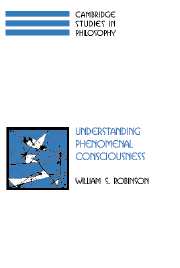13 - A POSSIBLE FUTURE
Published online by Cambridge University Press: 22 July 2009
Summary
The preceding chapter has supported a PACC view with converging lines of argument, one that starts with a thought experiment, and one that is based on homogeneity of phenomenal qualitied conscious events. There is much more that needs to be said in order to connect a PACC view with the possibility of a truly substantive unified dualism. At the same time, serious objections can be raised against what has already been said. Much of the necessary further development of a PACC view can be conveniently provided by stating and responding to these objections, and this will be the strategy I shall pursue in this chapter.
INDEPENDENCE OF PATTERN FROM MEDIUM
The first objection begins by noting a point that PACC theorists must emphatically approve, to wit: taking pattern seriously means distinguishing between pattern and medium and tying consciousness to pattern rather than medium. The objection is that the same patterns that cause consciousness might be realized in media that are extremely implausible as candidates for causes of consciousness. For example, if patterns (of neural activations) are essentially divisions of time into sets of ratios, the same sets of ratios might be producible by careful coordination of a corps of drummers. But no one would think that such a drumming would be sufficient to produce red experiences, for example, no matter how precisely the ratios of intervals between hits on various drum heads might match the ratios of activations in the neurons of a normal experiencer of phenomenal red.
- Type
- Chapter
- Information
- Understanding Phenomenal Consciousness , pp. 227 - 250Publisher: Cambridge University PressPrint publication year: 2004



